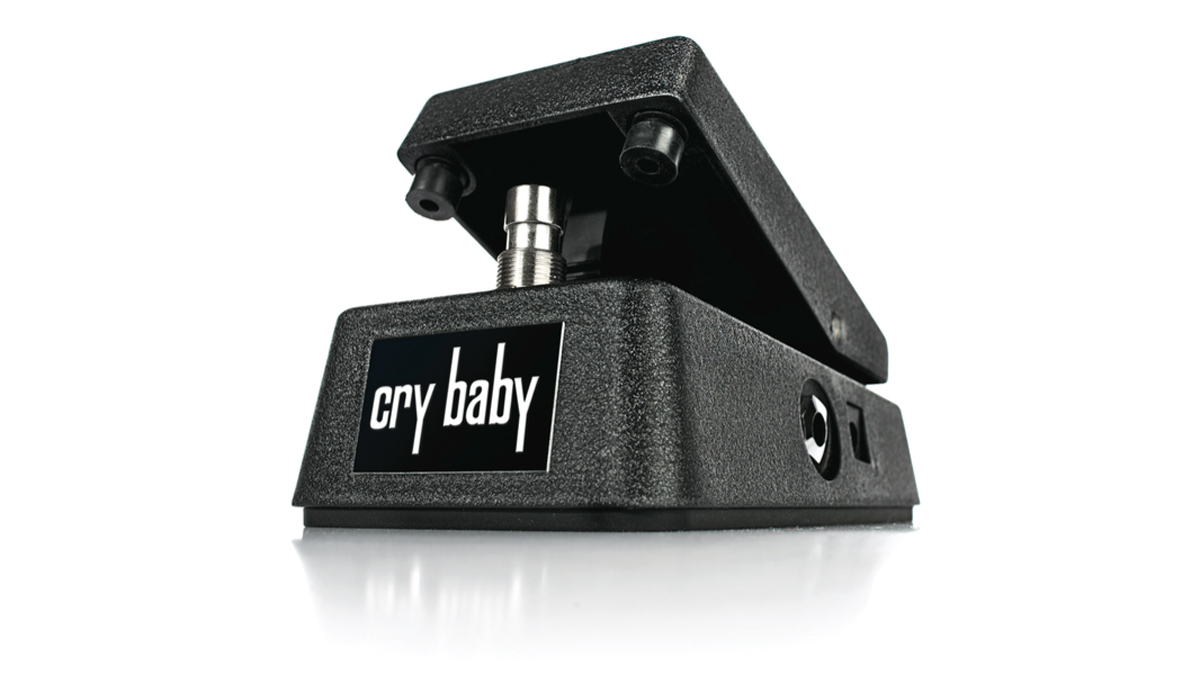MusicRadar Verdict
The Mini's compact size does nothing to diminish the Cry Baby legacy, thanks to top-class sounds and functionality.
Pros
- +
Quality construction.
Cons
- -
Lack of LEDs.
MusicRadar's got your back
It had to happen eventually: hot off the back of its Mini Fuzz Faces, Dunlop has chopped the Cry Baby in half, but without sacrificing spec.
As well as true bypass switching, a smooth-riding Hot Potz potentiometer and red Fasel inductor, the Mini also packs an internal three-way switch, which chooses between low, vintage and GCB95 voicings. Finally, it's powered by either a nine-volt battery or power supply.
On first sweep, there's a surprising amount of travel on the Mini, more akin to a full-size Cry Baby than similar mini wahs. Your heel moves further back than on a regular wah, though, so best get that ankle in shape! On the middle 'vintage' setting, the pedal's sweep is full and wide - it's closer to Dunlop's higher-end 535Q or CAE wahs than the standard-issue GCB95, thanks to a gradual transition from bass to treble that does away with harsh high-end in the toe-down position.
However, if you want to engage the GCB95's wiry upper range, a quick flick to the right on the three-position switch does the trick, while the low position gives you a throaty, resonant tone for synth-y sweeps on lower strings.
The Cry Baby Mini injects new life into the age-old wah formula, and any complaints we have about the lack of LEDs, easier battery access or external switches pale into insignificance when you consider the boutique-level tone and high-quality construction on display. For downsizers, mini-'boarders and anyone searching for a reasonably priced, classic-sounding wah, the CBM95 is a must-buy.
Want all the hottest music and gear news, reviews, deals, features and more, direct to your inbox? Sign up here.
Mike has been Editor-in-Chief of GuitarWorld.com since 2019, and an offset fiend and recovering pedal addict for far longer. He has a master's degree in journalism from Cardiff University, and 15 years' experience writing and editing for guitar publications including MusicRadar, Total Guitar and Guitarist, as well as 20 years of recording and live experience in original and function bands. During his career, he has interviewed the likes of John Frusciante, Chris Cornell, Tom Morello, Matt Bellamy, Kirk Hammett, Jerry Cantrell, Joe Satriani, Tom DeLonge, Radiohead's Ed O'Brien, Polyphia, Tosin Abasi, Yvette Young and many more. His writing also appears in the The Cambridge Companion to the Electric Guitar. In his free time, you'll find him making progressive instrumental rock as Maebe.

